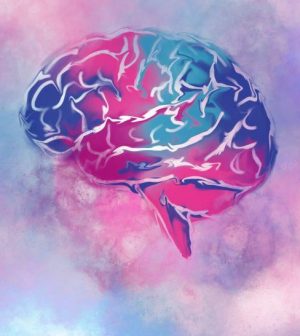- The Long-Term Effects of Daily Turmeric Supplements on Liver Health
- Could Your Grocery Store Meat Be Causing Recurring UTIs?
- Are You Making This Expensive Thermostat Error This Winter?
- Recognizing the Signs of Hypothyroidism
- 10 Strategies to Overcome Insomnia
- Could Artificial Sweeteners Be Aging the Brain Faster?
- Techniques for Soothing Your Nervous System
- Does the Water in Your House Smell Funny? Here’s Why
- Can a Daily Dose of Apple Cider Vinegar Actually Aid Weight Loss?
- 6 Health Beverages That Can Actually Spike Your Blood Sugar
Long COVID Patients Show Lower Levels of Brain Oxygen

People who have long COVID — lingering symptoms after a COVID-19 infection — may also have lower brain oxygen levels, cognitive problems and psychiatric troubles, such as anxiety and depression.
Researchers from the University of Waterloo in Canada and Drexel University in Philadelphia combined two parallel studies to better understand what is happening in long COVID patients.
One was a lab study that included tests of thinking skills and imaging of oxygen levels in the brain. The other was a national population survey of Canadians in 2021 and 2022.
The lab study compared people who did not previously have symptomatic COVID-19 with those who did have the virus. Those who had experienced COVID-19 did worse on two computer tasks. One measured inhibition. The other looked at impulsive decision-making.
People who had been infected did not have the expected increase in oxygen level in an area of the brain that is normally engaged during one of these tasks, the investigators found.
“We are the first to show reduced oxygen uptake in the brain during a cognitive task in the months following a symptomatic COVID-19 infection,” said lead author Dr. Peter Hall, a researcher in the School of Public Health Sciences at Waterloo, in Ontario. “This is important because a lack of sufficient oxygen supply is thought to be one of the mechanisms by which COVID-19 may cause cognitive impairment.”
For the other study, 2,000 Canadians aged 18 to 56 were surveyed. Those who had COVID-19 reported difficulty concentrating, problems with inhibition, and increased anxiety and depression.
While the effects were marginally stronger among unvaccinated people, the impact was still detectable after researchers controlled for how long it had been since respondents were infected.
“It appears that, regardless of gender and other demographic factors, COVID-19 infection at baseline is correlated with increased problems with emotion regulation six months later: depression, anxiety and agitation,” Hall said in a news release from the University of Waterloo. “In some cases, we are talking about symptom levels that are at or above recommended as cut-off scores for psychiatric diagnoses.”
Brain imaging found that older women were most affected.
“We don’t know for sure why this was the case, but there have been other studies showing that older women are especially impacted by some post-COVID-19 syndrome symptoms,” Hall said.
It’s not clear whether Omicron and later variants have the same effects on the brain as the earlier variants that were looked at in this study.
“Our two studies, using very different methods, highlight the need to understand the full range of harms of COVID-19 illness,” Hall said. “We still need to know more about how factors like vaccination affect the course of long COVID. We also need to know about how some physical conditions like diabetes, obesity and hypertension [high blood pressure] might impact these mechanisms and outcomes.”
The study findings were published in the March issue of the journal Brain, Behavior & Immunity—Health.
More information
The U.S. Centers for Disease Control and Prevention has more on long COVID.
SOURCE: University of Waterloo, news release, Feb. 28, 2023
Source: HealthDay
Copyright © 2026 HealthDay. All rights reserved.










